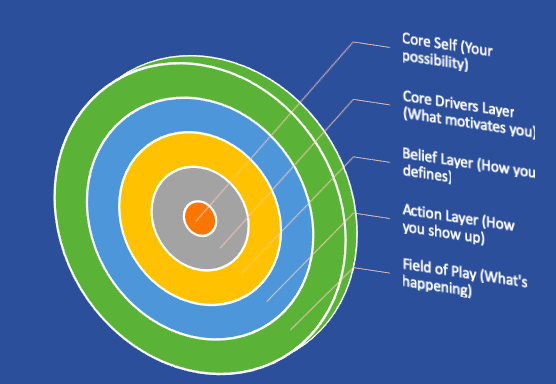How many times do you feel you are spending more time but still not getting the results?
Or if you are leading a team, do you feel that your team is not spending effort required to get things done?
Or for that matter, you believe that doing more, being busy is what gets things done?
If you have answered yes, to any of the above questions, you are conditioned by the habit of keeping yourself busy, doing more, hardwork, then conditioned by the habit of gettings things done.
The highly productive people, hard work is not their key measure. And actually they can get more done by doing less.
The habit of working too hard
Frankly many are working way too hard, spending a lot more time and energy to an extent that there isn’t much time or energy left to enjoy other aspects of life than work!
This habit of doing more to achieve more is taking toll of being stressed out mentally and drained emotionally.
But then we see some people whose performance is far superior for the same or even less effort. This is seen in every field be it in sports, music, business, leadership, sales and many other areas.
These are able to perform at ease without getting stressed or burned out in the process.
What is that difference between the ones who are able to perform at the peak with seemingly doing less vs others not performing in spite of tons of effort?
That means beyond efforts, something else is holding back! I like to compare this to the driving car,
Doing more but getting less done is similar to driving a car at 1st gear. At 1st gear, despite pressing the gas pedal to full, engine running at full throttle, guzzling the gas to the max, car max speed will be not beyond 40kms.
If one continues driving at 1st gear, sooner with the increased stress on the engine it might go bust. This is what means doing more but getting done less!
But now compare this to driving in 5th gear, here even with minimal effort on the gas pedal, the vehicle is performing at its best. The engine is in a smooth motion and no question of burning out. So, despite the seemingly low effort, the engine is geared for top performance!
So the people, who achieve performance at ease, are driving at top gear by focusing internally more than externally.
If you are in the habit of doing more, then you are mostly held back by how the inner engine is programmed to perform. It is a habit and the good thing is it can be stopped.
The secret of zero effort performance
As human beings, we all have the potential to perform. We have the resources within us to achieve what we want.
So having just the right tools, environments, everyone can achieve an increased level of performance.
Now, this potential isn’t translating to performance, because of the how inner game is programmed, what we can say is Interference.
I will explain what this interference is, for now, let’s understand the relation.
P = p – i
where P = Performance, p = Potential and i = Interference.
With ‘p (Potential)’ being constant, for increased performance, what is required is to focus on reducing the interference.
The interference is the mindset, beliefs, values, behaviors we hold.
The secret to the zero effort performance is, to reduce this interference so that we maximize the potential.
The habit of getting things done by doing less, or a zero effort performance is addressing these inner self than outer efforts.
How to reprogram for zero effort performance
Let us understand this inside out process and how we can program the inner self for zero effort performance. To understand this, see the picture below.
First, the Core Self is where unlimited possibilities exist. We all have equal possibilities. It is this inner core where the creative force, intention, the power to imagine, create and change exits. This is the same across all human beings.
2nd layer is about what drives you. This is all about intrinsic motivation. Most of us are driven by one or more of the common intrinsic motivations such as growth, curiosity, gaining mastery, enjoyment, learning, adventure.

The 3rd layer is what defines the beliefs, values. This is what defines how you define yourself and the world around you. The view of the world you hold is not the reality of the world. It is your version of the world.
The 4th layer is what action layer or how we show in terms of behavior, self-talk. The skills, competencies, and knowledge we have developed over the years.
The outermost layer is the environment we operate or the field of play. This is the area of context. In this layer depending on where you are, people around you, you will act in a certain way.
The attitudes, beliefs, values, perceptions, experiences determine how you see and perceive the world around. Many a times this is the interference which limit the performance!
The limiting beliefs, values, we hold influences our thinking, our habits.
So when a shift happens at the belief level, the results are transformative. It is not just incremental but exponential.
Let me share the experience of my student days!
During school, I always found Math sort of difficult subject. I liked to score better so, I spent a lot more time practicing Math compared to other subjects. But my Math scores weren’t any better than other subjects.
As I was in my PUC (12th), things changed. My math lecturer told me at the beginning of the year that, Math is easy and fun and anyone can score 100% in math. Till then I had never imagined that scoring 100% in Math is possible for me. But the word “easy” struck me! I wondered can I really see Math as Easy? I felt Math is a difficult subject and requires a lot of effort.
As I unconsciously started to accept Math as easy (Of course my lecturer made us look Math easy!), things changed.
I started enjoying solving problems and wasn’t spending a lot of effort. The answers started to come easily to me and indeed, I scored 100% in both state and competitive exams.
The change in my belief from Math as difficult to Math as easy and attitude that I can score 100% made a huge difference in final outcome!!
This is how reducing interference can make a difference.
Let’s see how does this apply in many other situations in the workplace, business.
Let’s say, you want to propose an idea to your team. You know that idea is novel and can make a difference in the saving of time.
Now if you have an underlying belief that when you propose ideas, it must be liked and accepted by everyone, it just causes that fear of rejection in you.
This constant feeling of approval from everyone makes you overwhelmed and chances you won’t propose your idea, or delay it or keep trying to over perfect it.
Instead, a change in your belief and accepting that says “You cannot please everyone. If you try to please everyone you will end up pleasing no one – including yourself.” can make your life a lot easy. Within the first couple of revisions of the idea, you can go and share!
Or let’s take if one wants to start a business but if they hold the belief, I don’t like a failure, what will happen? They will keep on identifying the perfect model or in the business will be working hard to avoid failure.
Instead of focusing efforts on how to succeed, the actions will be directed towards avoiding failure which means taking fewer risks, being in the comfort zone
The way our brain works is, it fulfills everything that we wish to avoid!
Instead, by programming a new belief, self-talk which says “There is no such thing as failure. There are only outcomes, feedback.” Then one can see the business as an experiment where one is working towards getting the right outcome”.
One more example, as a Leader, if you wish to influence teams to develop a new way of working, generate new ideas, work on a new process, the tendency to focus on outward action of increasing their knowledge levels, skills, coming up rewards is not enough.
Because, if the beliefs, values of the team don’t align with the new way of working, irrespective of giving new skills or knowledge will not make someone do things differently!
What will be required is to address the underlying beliefs, values. This requires an ability to understand and empathize with individuals to make the change acceptable.
Ones we program like this, our behavior changes, our outward actions change that helps develop new work habits. Finally, this helps to get more done by doing less.
Conclusion
The habit of getting more done by doing less or zero effort performance is an inside out process. By directing our focus internally to achieve higher outward success is proven way.
Appreciate comments and feedback

2 replies on “The habit of getting more done by doing less”
Very well articulated, Sir.
The formula although simple could be key in complex situations.
Thanks, Shirish. Good to know you liked. The way to practice is to keep asking questions and understand what underlying beliefs we hold and then reprogram with a belief that helps us. It is more effective when done with someone’s help like mentor or coach.